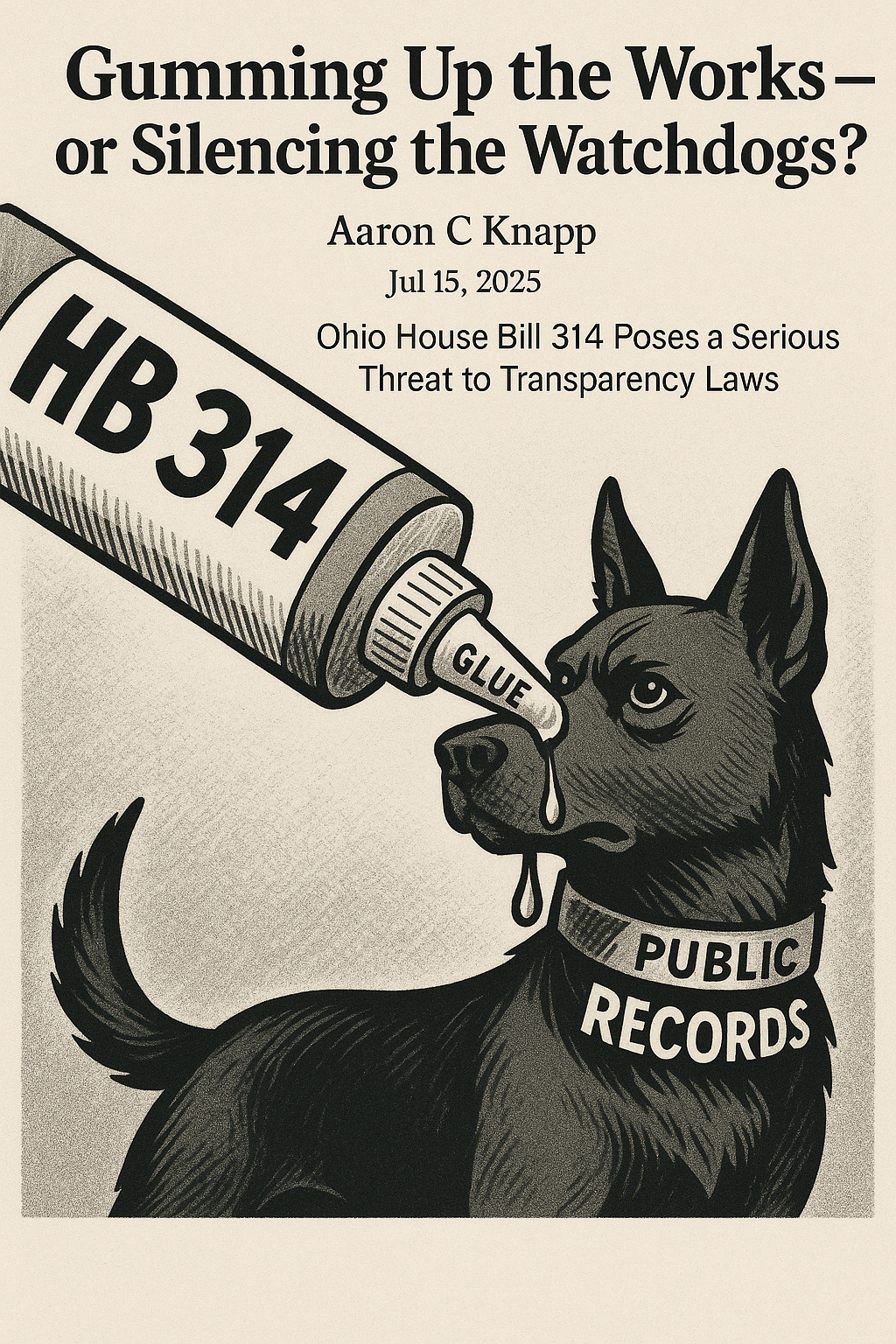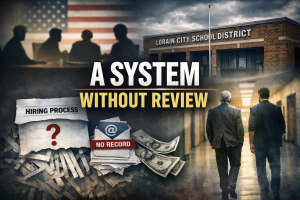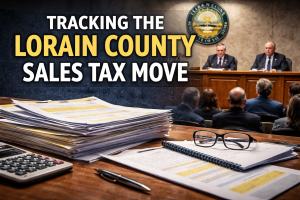Gumming Up the Works—or Silencing the Watchdogs?

Jul 15, 2025
Ohio House Bill 314 Poses a Serious Threat to Transparency Laws
By Aaron Knapp | Lorain City Politics Unplugged
COLUMBUS — A new bipartisan bill introduced in the Ohio House would allow local government offices to petition courts to limit or block public records requests from individuals deemed “harassing” or “obstructive.” House Bill 314, sponsored by Rep. Dani Isaacsohn (D-Cincinnati) and Rep. Sharon Ray (R-Wadsworth), claims to target a small number of people overwhelming public offices with high volumes of public records requests.

But transparency advocates and legal observers are raising red flags. Critics argue that the bill’s vague language, broad discretion, and reliance on subjective judgments threaten the core of Ohio’s longstanding public records law—especially its protections for anonymous requesters.
A Direct Threat to Anonymous Requests
Under current Ohio law, citizens are not required to provide their names, contact information, or reasons when submitting a public records request. This anonymity is a deliberate safeguard that protects whistleblowers, journalists, and ordinary citizens from retaliation.
HB 314, however, would be nearly impossible to enforce without undermining that protection. In practice, courts and agencies would need to trace requests through email addresses, IP metadata, or stylistic analysis in order to establish a pattern of behavior. This introduces the potential for surveillance and profiling—especially against citizens who make frequent or pointed requests for information.
In interviews, Rep. Isaacsohn has cited complaints from county prosecutors and government offices overwhelmed by high-volume requesters, claiming that fewer than 20 individuals are responsible for a disproportionate share of requests. But the bill provides no clear threshold for what constitutes harassment or obstruction. That determination would rest entirely with local courts, based on evidence submitted by the agency itself.
Loopholes, Exceptions, and Hidden Consequences
HB 314 includes carveouts for journalists, attorneys, and certain state agencies. But those carveouts raise further concerns. If lawmakers are confident that this bill preserves public transparency, why shield entire classes of professionals from its provisions?
The bill also authorizes public offices to hire private contractors to manage “voluminous” requests—an arrangement that could put sensitive records into the hands of third parties with little public oversight.
Critics warn that this could result in inconsistent records handling and further delays, especially in under-resourced communities already struggling to comply with existing transparency requirements.
A Broader Retreat from Open Government
The timing of HB 314 is not accidental. Just before summer recess, the Ohio General Assembly passed House Bill 96, a budget measure that quietly included language exempting legislators’ emails, texts, and documents from public records disclosure until after the two-year legislative session concludes. Governor Mike DeWine did not veto the measure.
Taken together, these two bills suggest a broader move by state lawmakers to narrow public access to government information.
Transparency advocates argue that such restrictions could insulate public officials from scrutiny during the most politically sensitive times—precisely when accountability matters most.
Implications for Local Communities Like Lorain
For cities like Lorain, where citizen watchdogs, neighborhood groups, and journalists have long relied on public records to monitor government decisions, HB 314 could have an outsized impact. Local controversies—from police oversight to development deals—have often come to light only after determined citizens obtained documentation through public records requests.
If HB 314 becomes law, those same citizens could be accused of harassment simply for asking persistent questions.
And without a name on a records request—as Ohio law currently allows—it’s unclear how enforcement would be consistent or fair.
Next Steps
HB 314 is awaiting its first committee hearing, likely in the fall once the legislature reconvenes. In the meantime, transparency groups are mobilizing to oppose the bill and raise awareness.
Citizens concerned about the direction of open government in Ohio are encouraged to contact their representatives and speak out.
The question at the heart of the bill is simple: Should public servants have the power to decide when the public is asking too many questions?
In a democracy, the answer should always be no.
Aaron Knapp is an independent journalist and editor of Lorain City Politics Unplugged, covering local government, accountability, and civic power in Northeast Ohio






